Safely extend the life of your marine hoses with our inspection, maintenance and storage solutions.
James Fisher Fendercare (JF Fendercare) ensures the ongoing reliability and safe life extension of your marine hoses, offering a complete onshore and offshore floating hose maintenance, inspection, and storage service.
Regular inspection and maintenance of your marine hoses is recommended to support their ongoing safe and reliable functionality, for example:
- Keeping hose strings always operational for each oil offloading
- Determining the service life of each hose type
- Optimising the number and type of interventions offshore (hose disconnection, towing of the hoses string, divers operation) and onshore (testing and repair of hoses)
- Anticipating hose replacements well in advance
- Efficiently managing the stock of spare parts onshore
- Having the ability to react to any hose failure in an efficient and safe manner whilst minimising the potential consequences of environmental damage and production
All our marine hose services are undertaken to the Oil Companies International Marine Forum's (OCIMF) guidelines for the handling, storage, inspection, and testing of hoses in the field.

Marine hose inspection and testing
JF Fendercare’s hose inspection and testing services prevent failure and damage of your marine hoses to safely extend hose service life.
All hose tests are undertaken by local qualified and experienced personnel, to ensure complete compliance and certification in accordance with OCIMF (guidelines for the handling, storage, inspection, and testing of hoses in the field) and manufacturer’s recommendations.
Our hose inspection and testing services include:
- Dimensional measurements - Weighing the hose and comparing it with the initial figures indicated on the original OCIMF certificate. This test is only carried out if there is a suspected failure of one of the carcasses.
- Electrical continuity tests - By construction, Yokohama main line hoses are invariably electrically continuous (carcasses being electrically continuous flange to flange). So it is more useful to check only the electrical discontinuity for tail hoses and tanker rail hoses (specific inner flange design) in accordance with OCIMF requirements.
- Hydrostatic tests - Values of hose elongation can be also compared to initial values.
- Vacuum tests - Carried out to detect an eventual delaminating of the rubber liner.
- Visual inspections - An internal and external examination is made to check damages such as cuts, tears, abrasion, deformation, blister, corrosion, etc.
- Weight tests - Weighing the hose and comparing it with the initial figures indicated on the original OCIMF certificate. This test is only carried out if there is a suspected failure of one of the carcasses.

Marine hose maintenance
JF Fendercare provides full marine hose maintenance support in line with OCIMF guidelines to ensure reliability and safe operations.
In order to prevent hose damage and risk to your offshore operations, it is recommended that maintenance is carried out in line with the manufacturer’s and OCIMF’s guidelines and in line with any legislation that may be applicable. Regular maintenance and testing ensure the reliability of your marine hoses, and can also help to safely extend the life of your assets.
Regular hose maintenance ensures reliability
For hose repairs, the external hose body can be repaired when only superficially damaged, for example when steel carcasses are not damaged. In case of any doubt regarding the possibility of hose repair, we will provide all recommendations and expertise to facilitate the repairs where required.
To ensure all repairs last, they must be carried out in an area free from moisture and dust. Areas with grease traces and dirt must be cleaned and then dried (trichloroethylene) before being repaired.
Although the life expectancy of a hose is closely linked to its location, use and the conditions of each site (weather, currents, handling, storage, etc.), a significant factor is the correct maintenance.

Marine hose storage
JF Fendercare provides safe storage to protect your marine hoses in accordance with OCIMF and the manufacturer’s guidelines.
Hoses should be stored on steel framed pallets in accordance with OCIMF guidelines and stored in a dark, if possible dry area. Where closed storage is not possible, hoses should be covered to protect them from sunlight.
Safe and secure storage solutions
Our steel frame pallets enable hoses to be stored about three meters high which, in addition to reducing the area required for storage, eliminates any damage or distortion which might result if stored directly on the ground. Pallets facilitate examination and make markings easily accessible for checking. They also help to protect against insect and rodent attacks as the hoses are off the ground.
JF Fendercare can also provide dedicated steel racks for hose storage providing protection against sunlight (U/V) in accordance with the manufacture's guidelines. This also includes ensuring ancillary equipment relative to the offloading line (bolts, nuts, floats, chains, spools, etc.) are adequately stored and in good working condition.




